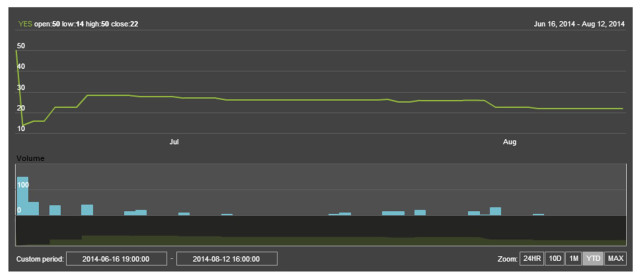August 13, 2014
Two recent reports released by Human Rights Watch offer further confirmation of episodes of state-led mass killing in Egypt and South Sudan, beginning in 2013. In our 2013 risk assessments, South Sudan and Egypt were ranked 4th and 6th, respectively, as countries most likely to experience state-led mass killing.
Human Rights Watch’s report on Egypt, summarized here, documents incidences of civilian killings that took place in the weeks after the Egyptian military staged a coup and overthrew President Mohammad Morsi in July and August of 2013. The report says that in response to sit-ins and protests organized by supporters of Morsi,
“police and army forces repeatedly opened fire on demonstrators, killing over 1,150, most of them in five separate incidents of mass protester killings… On this basis, Human Rights Watch concludes that the killings not only constituted serious violations of international human rights law, but likely amounted to crimes against humanity, given both their widespread and systematic nature and the evidence suggesting the killings were part of a policy to attack unarmed persons on political grounds.”
In a blog post written at the onset of this episode, Early Warning Project Director Jay Ulfelder described three scenarios in which state-led mass killing occur, each involving threats to the ruling regime’s power and attempts to squash those threats. As Ulfelder points out, Egypt appears to follow the post-coup scenario in which “rulers who have recently seized power by coup or revolution sometimes kill large numbers of civilian supporters of the faction they have just replaced as part of their efforts to consolidate their power.” In fact, in the report, Human Rights Watch says “The brutal manner in which security forces carried out the [sit-in] dispersals appears to reflect policies that Egyptian authorities at the highest levels implemented after weeks of planning.”
The report on South Sudan notes that while exact casualty counts cannot be determined, thousands of civilians have been killed, and that “The first months of South Sudan’s new war were distinguished less by fierce battles between fighting forces than by horrific attacks on civilians often because of their ethnicity and presumed allegiances."
We consider both of these confirmed episodes of mass killing to be ongoing. In Egypt, civilians continue to be tortured and killed in police custody, and in South Sudan, a looming famine, man-made by fighting, puts millions of civilians at risk of death. Additionally, the Early Warning Project’s Expert Opinion Pool remains skeptical of an interim government being formed in South Sudan by 1 September 2014. Currently, the forecasted likelihood is 22-percent, and where the conflict is unlikely to end, civilian deaths are likely to continue.

Before September 1, 2014, will an interim government be formed in South Sudan?
Countries can also experience more than one episode of state-led mass killing at the same time, if and when the state targets more than one discrete group in distinct conflicts. In our recently updated statistical risk assessments, Egypt and South Sudan continue to be ranked in the top 30 countries most at risk for the onset an episode of state-led mass killing in 2014 and in both countries, a new onset of mass killing would be in addition to the ongoing instances.
View All Blog Posts